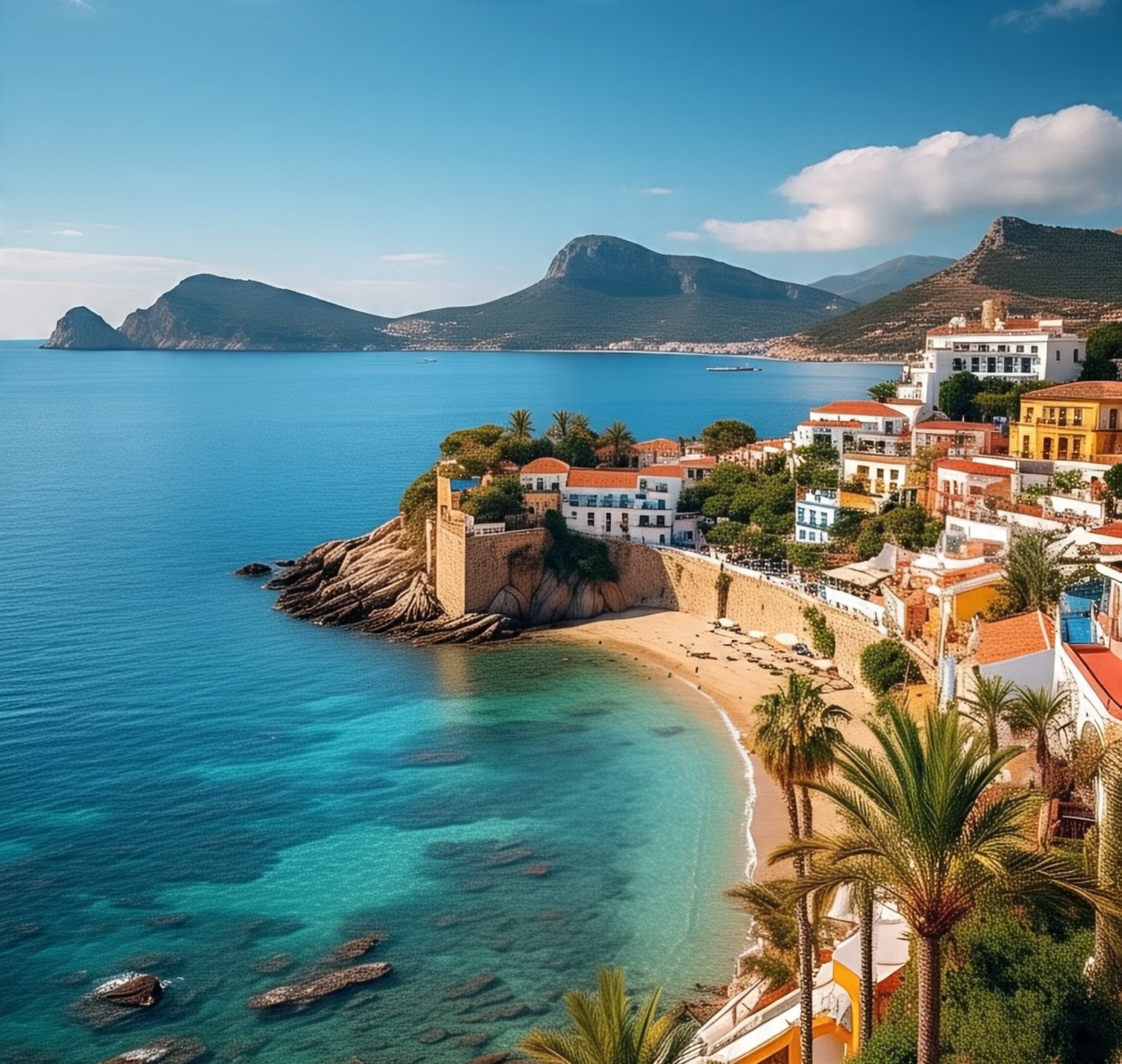<> Viral of Today <>
Home
»
Spain Travel News
»
Ibiza Enforces Rigorous Cap on Tourist Vehicles to Mitigate Over tourism and Safeguard Environmental Sustainability in Spain Here’s All You Need to Know About Tourism Regulations
Wednesday, June 4, 2025
Ibiza Sets New Limit on Tourist Vehicles to Combat Overtourism and Promote Sustainability
As of June 1, Ibiza has implemented a significant policy change to tackle the issue of overtourism and its impact on local infrastructure and the environment. In response to these growing concerns, the Consell Insular d’Eivissa (Ibiza Island Council) introduced a daily cap on the number of vehicles allowed by tourists. This new regulation, which will remain in place until September 30, restricts the number of vehicles to 20,168 per day. The goal of this initiative is to ease the strain on the island’s roads and natural resources, while also promoting more sustainable tourism practices.
Vehicle Quota and Operational Rules
The policy divides the vehicle quota into categories. 16,000 of the allotted vehicles will be reserved for rental cars, while the remaining 4,048 vehicles will accommodate privately owned motor vehicles like caravans and motorhomes. A special provision has been made for residents of Formentera, the neighboring island, with 120 vehicles allocated each day for their use. Tourists who wish to bring their own cars will be required to pay a €1 fee per vehicle for entry.
The rules also impose stricter conditions on caravans: travelers with caravans must now provide proof of a reservation at a campsite, as wild camping and roadside parking have been strictly banned. Motorbikes are currently exempt from these restrictions, offering some flexibility for visitors who rely on two-wheeled transport.
To enforce these limits, the Ibiza Island Council has introduced a digital permit system in collaboration with local traffic authorities, ferry operators, and car rental companies. This system will help track and manage the number of vehicles entering the island each day, ensuring that the cap is adhered to.
Addressing the Rapid Growth of Traffic and Tourism
With a population of around 160,000, Ibiza attracts more than 3 million tourists annually. This influx has contributed to a dramatic increase in vehicle numbers, from 51,000 cars in 2002 to 207,000 in 2022, representing a staggering fourfold increase in just two decades. The rise in vehicles has caused severe traffic congestion, further compounded by the limited road infrastructure on the island.
This new vehicle cap is part of a larger effort to relieve the island’s traffic woes and support more sustainable tourism. According to officials from the Ibiza Island Council, the intention behind the policy is to balance the needs of both residents and tourists by protecting the island’s environment and improving the quality of life for local inhabitants. Authorities have emphasized that the goal is not to restrict tourism but to encourage a more responsible approach that ensures the island remains a desirable destination for years to come.
Industry Pushback and Regional Trends
While the cap has been widely praised by environmental groups and residents, it has faced some opposition from segments of the tourism industry, particularly car rental agencies and hotel chains. These stakeholders have raised concerns about the potential negative impact on their businesses, arguing that the restrictions could limit access for tourists and reduce profits.
However, the Ibiza Island Council has been firm in its stance that long-term environmental health and community well-being must take precedence over short-term economic gains. The move aligns with broader efforts in the Balearic Islands to implement more sustainable tourism practices across the region. For instance, Formentera has implemented a similar vehicle limit under its “Formentera Eco” program since 2019, which has been recognized as a model by the European Union’s Committee of the Regions. Similarly, Mallorca has announced plans to introduce similar vehicle restrictions by 2026, reflecting the growing trend among the Balearic Islands to prioritize eco-friendly tourism policies.
Impact on the Travel Industry and Global Tourism Trends
The vehicle cap is expected to have significant consequences for both the local travel industry and global travelers:
Improved Road Safety: Fewer cars on the roads will likely result in safer driving conditions for both locals and tourists.
Environmental Benefits: The reduced number of vehicles will help lower carbon emissions, contributing to the island’s goal of preserving its natural beauty.
More Sustainable Tourism: By promoting eco-friendly travel options, the policy may encourage tourists to adopt greener methods of transport, such as public transit, cycling, or walking.
For global travelers, the new restrictions highlight a broader shift in how popular destinations are managing their tourist inflows. Ibiza’s initiative is a reflection of an increasing global awareness of the need to balance economic growth with environmental conservation. This trend is gaining traction worldwide, as many popular destinations seek to protect their resources while maintaining their appeal.
Long-Term Vision for Sustainable Tourism
This cap on tourist vehicles is just one part of Ibiza’s broader vision for sustainable tourism. The island is aiming to ensure that it can continue to attract visitors without compromising its natural ecosystems or the well-being of its residents. As part of this effort, authorities are likely to introduce more eco-friendly policies in the coming years, including promoting public transportation and encouraging travelers to use greener alternatives, such as electric cars.
Additionally, the policy’s long-term impact on the local tourism economy is expected to be positive, as it will encourage a more controlled, sustainable flow of tourists. By limiting the environmental impact of mass tourism, Ibiza hopes to preserve its status as a top global destination while setting an example for other regions to follow.
The new vehicle restrictions in Ibiza are a proactive step towards solving the challenges posed by overtourism. With this measure, the island is sending a clear message that the future of tourism lies in more sustainable practices. This initiative, in conjunction with similar policies in nearby islands like Formentera, sets the stage for a broader shift in how the world’s most popular tourist destinations manage visitor numbers and environmental responsibility.
By introducing such a policy, Ibiza is helping to preserve its heritage, protect its residents, and provide a more responsible framework for future generations of travelers. It reflects a global trend toward making tourism more conscious, sustainable, and in harmony with the environment.
This information will surprise you!
See also
- Read until the end to discover everything.
- Important information you need to know.
- Interesting facts and helpful tips.
Conclusion
Did you enjoy the news? Keep following us daily!

